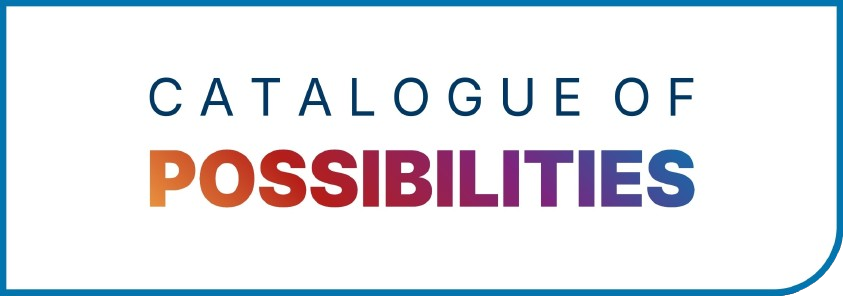Catalogue of Possibilities / MPAs
Beyond Net Zero
Click / tap the stars next to items in the CoP to mark your favourites.
Glasgow’s Beyond Net Zero research recognises that science and technology research into reducing carbon emissions alone will not create a just and sustainable future.
The Centre for Sustainable Solutions is home to researchers undertaking work that addresses the challenges of net zero, climate change and sustainability. They are committed to advance science and technology, while recognising that scientific breakthroughs and innovation need to be conducted alongside considering resource and carbon efficiency, and longer-term implications of our work on future generations.
There are tensions between acting towards a net zero future and adapting to a changing climate. The University of Glasgow’s researchers recognise that their work takes place within a context of increasing societal challenges like socioeconomic and health inequalities and are pushing the boundaries of science and technology while reducing the trade-offs that cause harm to people and planet.
The University of Glasgow is a member of Scotland Beyond Net Zero, a coalition designed to catalyse research collaboration, empower communities and inform the policymaking and action Scotland needs to reach its ambitious targets.
At the University of Glasgow, a wide range of disciplines apply their research to solving the climate crisis. For instance, in topics like:
- The Environment: biological and chemical sensing, pollution monitoring, environmental biotechnology, biofilters for drinking water, bioremediation technologies for polluted land, coastal climate change risks, green infrastructure, landscape evolution modelling, noise pollution.
- Renewable and Circular Resources: polymer hybrid materials and polymers from renewable resources, circular electronics, sustainable chemicals, clean energy, energy harvesting, offshore wind. The Glasgow Centre for Sustainable Energy is working towards the provision of energy as a service to sustainable and inclusive development, avoiding unintended environmental and societal consequences.
- Carbon & Greenhouse Gas Emission Reductions: greenhouse-gas emissions from water treatment, CO2 capture and reactivity, CO2 mineralisation, enhanced rock weathering, energy-efficient computing, life cycle assessment, hydrogen-electric powered aircrafts, decarbonised transport.
- Digital and Systems Solutions: digital twins of biotreatment processes, LiFi technology for sustainable connectivity demands of the future, agent-based simulation, artificial intelligence, disaster risk reduction, climate change AI.
Our supervisory teams often collaborate beyond traditional science and technology disciplines to bring the latest research findings to applied areas like rural development and place-based community development. An example of this is the GALLANT project, which aims to deliver a climate resilient city through city-university partnership by using Glasgow as a living lab.
Supervisors working in this field
Professor Alasdair W Clark
Professor of Nanoscale Engineering
Dr Anthony Centeno
Lecturer
Dr Bernhard Schmidt
Lecturer
Dr Carlos Domingo-Félez
Lecturer
Professor Caroline Gauchotte-Lindsay
Professor of Environmental Engineering and Chemistry
Dr David Boldrin
Lecturer
Dr Eky Febrianto
Lecturer in Computational Mechanics
Professor Emily Draper
Professor of Soft Materials
Dr Emma Gibson
Senior Lecturer
Dr Hanaa Abumarshoud
Lecturer (Assistant Professor)
Prof Hui Yu
Professor of Visual and Cognitive Computing
Dr Ian MacLaren
Reader in Physics
Professor Jaime L. Toney
Professor in Environmental and Climate Science
Dr Jeremy Singer
Reader in Programming Language Implementation
Dr Ji-Eun Byun
Lecturer in Smart Resilient and Sustainable Infrastructure
Dr John MacDonald
Senior Lecturer in Anthropogenic Geomaterials
Dr Jun Young Cheong
Reader in Materials for Green Energy Technologies (Systems Power & Energy)
Professor Larissa Naylor
Professor of Geomorphology and Environmental Geography
Dr Lauritz Thamsen
Lecturer in Computer Systems
Dr Maggie Creed
Lecturer in Water Engineering
Dr Mahmoud Wagih
Lecturer and UK IC Research Fellow
Dr Masood Ur Rehman
Senior Lecturer in Electronic Engineering
Dr Paul R. Eizenhöfer
Senior Lecturer in Computational Geoscience
Dr Prashant Saxena
Senior Lecturer in Solid Mechanics
Dr Róisín Buckley
Senior Lecturer
Professor Ross Forgan
Professor of Supramolecular and Materials Chemistry
Dr Sam Bayliss
Lecturer in Quantum Engineering
Dr Tiffany Vlaar
Lecturer
Dr Wrik Mallik
Lecturer in Aerospace Engineering

